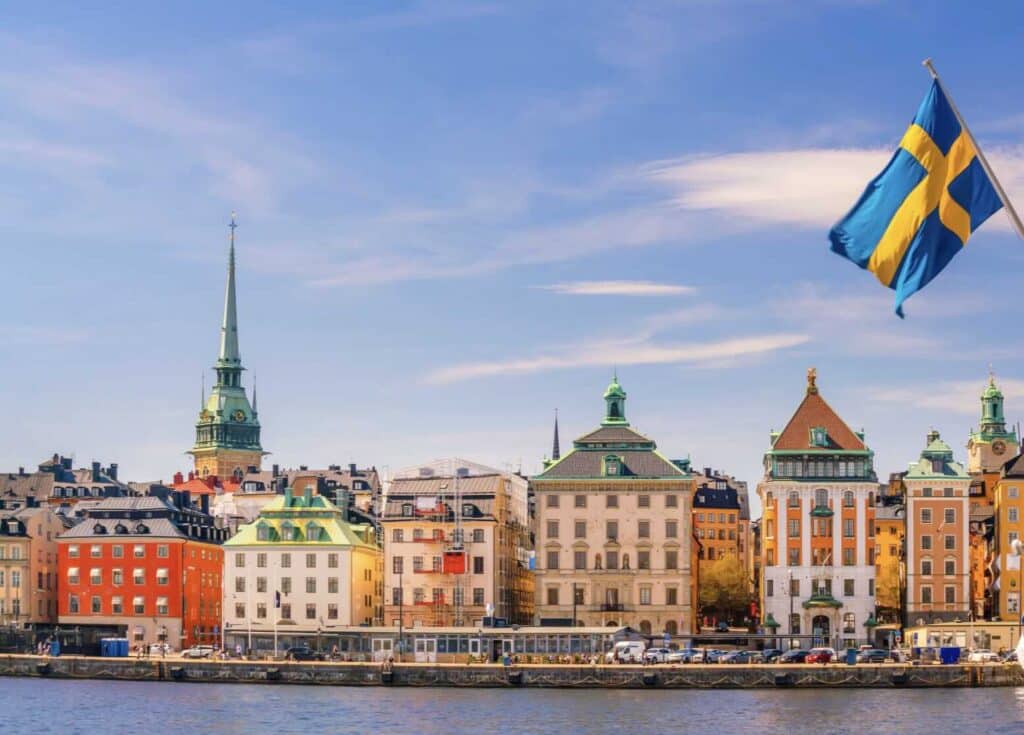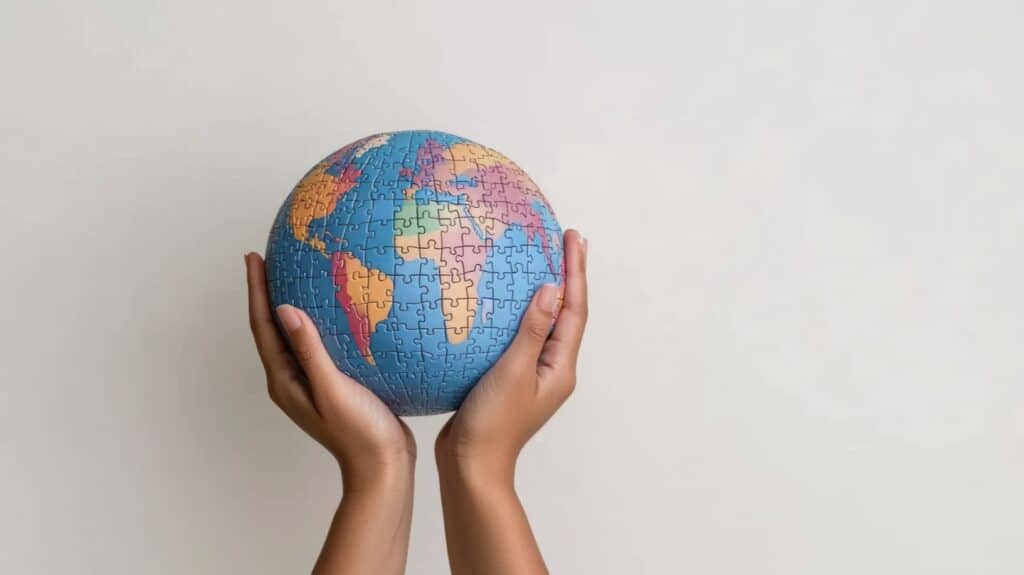Moving to a new country is an adventure filled with excitement, opportunities, and challenges. It’s a chance to immerse yourself in a different way of life, explore new cultures, and grow as a person. Yet, for many people, the initial stages of living abroad can feel overwhelming due to cultural shock. This natural reaction to unfamiliar customs, traditions, and ways of life is a common experience for anyone stepping into a new cultural environment.
But while cultural shock can be unsettling, it’s also the first step toward cultural adaptation—a process that allows you to embrace the differences, learn from them, and thrive in your new surroundings. In this blog post, we’ll explore the concepts of cultural shock and cultural adaptation, share personal experiences, and provide tips to help you navigate the journey of living abroad successfully.
Table of Contents
- Understanding Cultural Shock
- My Personal Experience with Cultural Shock
- What Is Cultural Adaptation?
- How to Navigate Cultural Shock and Adapt
- The Benefits of Cultural Adaptation
- Thriving Abroad: A Lifelong Journey
- Related Questions
Understanding Cultural Shock
Cultural shock is the emotional and psychological disorientation that many people feel when they encounter a culture different from their own. It’s not just about noticing differences in food, language, or traditions—it’s about deeper contrasts in values, social norms, and ways of thinking.

The Phases of Cultural Shock
Cultural shock often unfolds in several phases:
The Honeymoon Phase
When you first arrive in a new country, everything feels exciting and novel. You’re fascinated by the differences, eager to explore, and thrilled by the adventure. This phase is often characterized by optimism and a sense of curiosity.
The Frustration Phase
As the novelty wears off, you may begin to notice the challenges of living in a new culture. Everyday tasks, such as shopping for groceries, navigating public transportation, or understanding social cues, can feel daunting. You might find yourself comparing the new culture to your home country and feeling frustrated by the differences.
The Adjustment Phase
Over time, you start to adapt. You learn how to navigate the culture, understand its norms, and find ways to connect with the people around you. While there may still be moments of frustration, you begin to feel more comfortable and confident in your new environment.
The Acceptance Phase
In this final phase, you fully embrace the new culture. You see its strengths and beauty, and you feel at home in your new surroundings. At this point, you’ve successfully adapted and can thrive in your new environment.
My Personal Experience with Cultural Shock

I vividly remember my first experience with cultural shock when I traveled internationally to attend high school in Sweden. Coming from a different cultural background, I initially found myself comparing everything to my home country.
For example, I was struck by how reserved people seemed in Sweden compared to the warm, outgoing nature of people back home. At first, I saw this difference as a negative, thinking that Swedes were too distant or unfriendly. I even found myself being critical of their way of life, simply because it was so different from what I was used to.
But over time, I began to understand and appreciate the Swedish culture. I realized that their reserved nature wasn’t a lack of friendliness—it was a reflection of their respect for personal space and boundaries. I learned to see the beauty in their way of life and even adopted some of their habits, like enjoying long walks in nature and savoring the quiet moments of fika (a coffee break with friends).
This shift in perspective marked the beginning of my cultural adaptation journey.
What Is Cultural Adaptation?
Cultural adaptation is the process of adjusting to a new culture and finding ways to thrive within it. It’s not about abandoning your own cultural identity—it’s about learning to appreciate and integrate aspects of the new culture into your life.
Adaptation requires an open mind, a willingness to learn, and the ability to embrace change. It’s about shifting your focus from “What’s wrong with this culture?” to “What can I learn from this culture?”

How to Navigate Cultural Shock and Adapt
Here are some strategies to help you move from cultural shock to cultural adaptation and thrive in your new environment:
1. Acknowledge Your Feelings
It’s normal to feel overwhelmed, frustrated, or homesick when you first move to a new country. Acknowledge these feelings without judgment and remind yourself that cultural shock is a natural part of the adjustment process.
2. Learn About the Culture
Take the time to learn about the history, traditions, and values of your new country. Understanding the cultural context can help you make sense of the differences and appreciate them.
For example, if you’re living in Japan, learning about the concept of omotenashi (hospitality) can help you understand why customer service is so meticulous and why politeness is highly valued.
3. Keep an Open Mind
Approach the new culture with curiosity rather than judgment. Instead of comparing it to your home country, focus on understanding why things are done differently.
For instance, if you’re in Italy and notice that meals are long and leisurely, embrace the opportunity to enjoy the experience rather than rushing through it as you might at home.
4. Build Relationships
One of the most effective ways to adapt to a new culture is to connect with the local people. Building relationships with locals can give you insights into the culture and help you feel more at home.
Don’t be afraid to ask questions or seek guidance. Most people are happy to share their culture with others and will appreciate your interest.
5. Maintain a Sense of Humor
Cultural misunderstandings are inevitable, but they don’t have to be a source of stress. Learn to laugh at your mistakes and see them as opportunities to grow.
For example, if you accidentally use the wrong word in a foreign language and end up saying something funny, embrace the moment and use it as a chance to improve your language skills.
6. Stay Connected to Your Roots
While it’s crucial to adapt to your new culture, it’s also essential to stay connected to your own. Find ways to celebrate your cultural heritage, whether it’s through cooking traditional meals, celebrating holidays, or connecting with others from your home country.
7. Be Patient with Yourself
Adaptation takes time, so be patient with yourself as you navigate the ups and downs of living in a new culture. Celebrate your progress, no matter how small, and remember that every step forward brings you closer to thriving abroad.
The Benefits of Cultural Adaptation
While cultural adaptation can be challenging, it’s also gratifying. Here are some of the benefits of embracing a new culture:
Personal Growth:
Living in a new culture pushes you out of your comfort zone and helps you develop resilience, adaptability, and empathy.
Broader Perspective:
Exposure to different ways of life broadens your perspective, helping you see the world in new and exciting ways.
Deeper Connections:
Building relationships with people from different cultures enriches your life and deepens your understanding of humanity.
Professional Opportunities:
Cultural adaptation can enhance your career by giving you the skills and experience to work effectively in diverse environments.
Thriving Abroad: A Lifelong Journey
Cultural adaptation is not a one-time event—it’s a lifelong journey. Even after you’ve adjusted to your new culture, there will always be more to learn and discover. Embracing this mindset of continuous growth and exploration is the key to thriving abroad.
Whether you’re moving to a new country for work, study, or adventure, remember that cultural shock is just the beginning. By keeping an open mind, building connections, and embracing the differences, you can turn the challenges of living abroad into opportunities for growth and transformation.
Living in a new culture is one of the most enriching experiences you can have. It teaches you to see the world through new eyes, appreciate the beauty of diversity, and discover strengths you never knew you had. So, take the leap, embrace the journey, and thrive in your new home.

Final Thoughts
As I reflect on my own experiences of cultural shock and adaptation, I’m reminded of how much I’ve grown through these challenges. Moving to Sweden as a teenager taught me to see the good in every culture and to approach differences with curiosity and an open heart.
Wherever your journey takes you, remember that cultural adaptation is not about losing yourself—it’s about expanding yourself. It’s about learning, growing, and becoming a more compassionate and understanding global citizen.
So, if you’re preparing to move abroad or are already navigating the challenges of cultural shock, know that you’re not alone. Embrace the process, trust in your ability to adapt, and look forward to the incredible experiences that await you. The world is a prominent, beautiful place, and every culture has something valuable to teach us.
At A Bus On A Dusty Road, we talk about everything about history, travel, life, sailing, and ex-pat living. We are all about “Living Life As A Global Citizen.” We explore social, cultural, and economic issues and travel.
We would love to have you be part of our community. Sign up for our newsletter to keep up-to-date by clicking here. If you have any questions, you can contact me, Anita, by clicking here.
Listen to our Podcast called Dusty Roads. You can find it on all major podcast platforms. Try out listening to one of our podcasts by clicking here.
Subscribe to our A Bus On A Dusty Road YouTube Channel with great videos and information.
Related Questions
Is Mexico A Socialist Country?
Mexico is not a truly socialist country but is known to have a mixed economy which means that Mexico has both capitalist and socialist characteristics and tendencies. Mexico is a mixed economy as both capitalism and socialism as able together.
By clicking here, you can discover Is Mexico A Socialist Country?
Is Singapore A Socialist Or Capitalist Country?
Singapore has characteristics of both a socialist and capitalist country, so they are known to have a mixed economic system. They are also ranked number one in the world for freedom. Singapore has also been an extremely prosperous country that is not just free but also wealthy.
By clicking here, you can discover Could America Have Won The Vietnam War?
What Was The Main Reason For US Involvement In Vietnam?
The main reason for the involvement of the United States in the Vietnam War was the belief in the Domino theory; the Domino theory was a principle used to describe the effects on the world if Vietnam fell to communism. If Vietnam became communist, then the rest of Asia, New Zealand, and even Australia would also eventually become communist. At the time, American leaders felt they were fighting for the survival of democracy worldwide.
By clicking here, you can learn more by reading What Was The Main Reason For U.S. Involvement In Vietnam?

